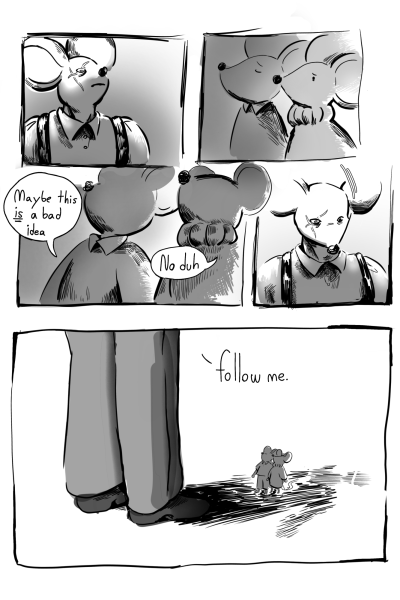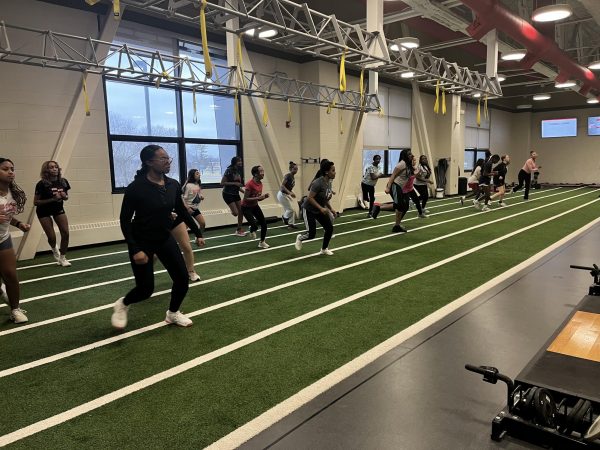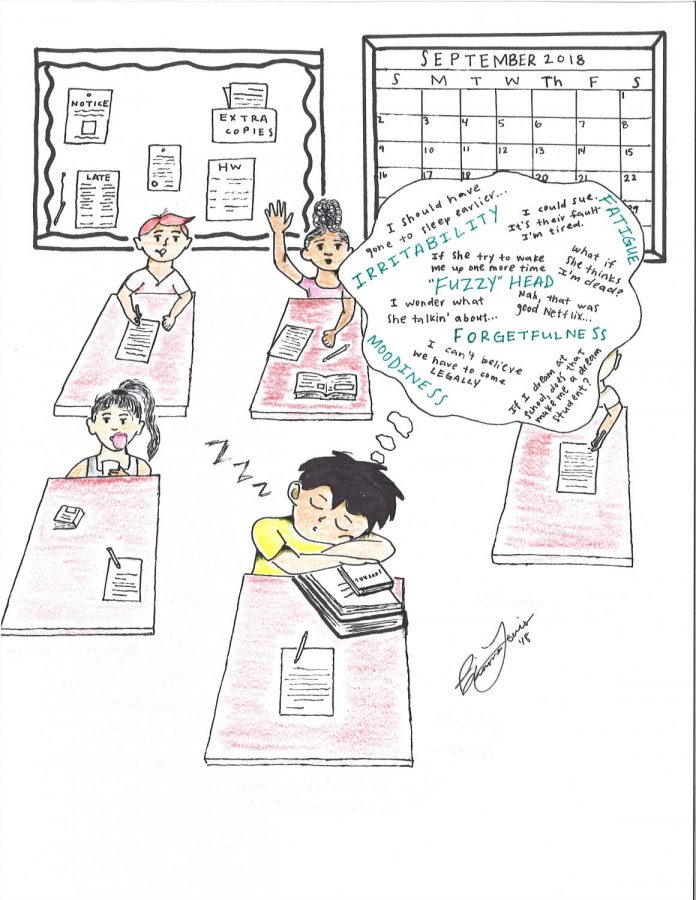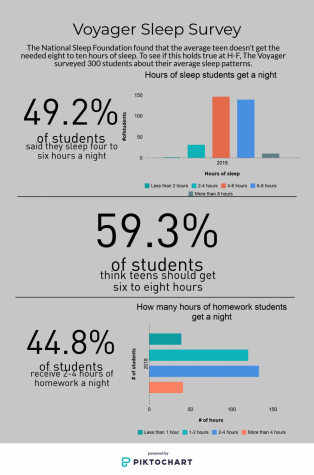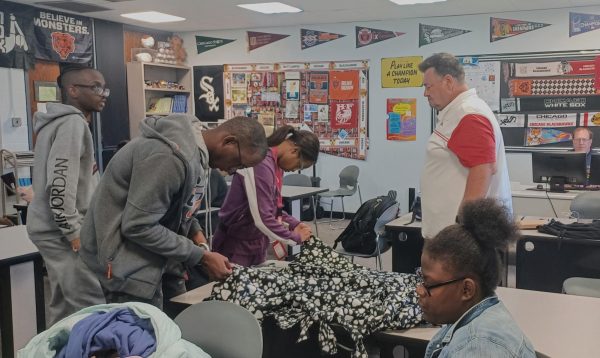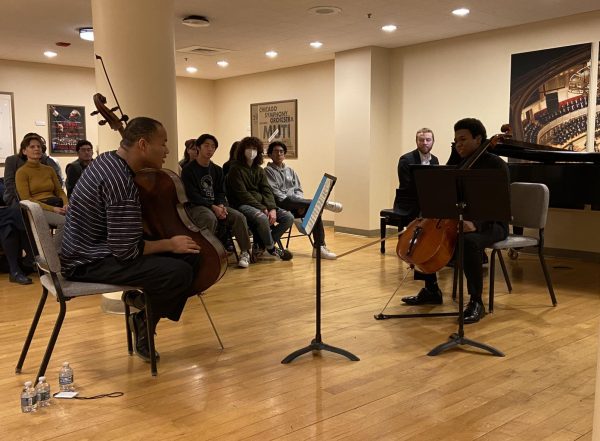Are you getting enough sleep?
Research finds most teens aren’t getting enough sleep
It’s midnight and you are still up doing homework after a long day of school and soccer practice. You still have two hours worth of homework to get through and are struggling to stay awake. This is a dilemma many high school students face on a regular basis.
According to the National Sleep Foundation, teens need about eight to ten hours of sleep a night, but only 15 percent reported that they sleep about eight hours on school nights.
Many students at H-F and across the country have to do hours of homework, participate in extracurricular activities, and go to work on a daily basis. Sometimes, sleep may not be a priority. However, psychology teacher Terri Davis said the body needs to have a break in order to repair itself.
The body needs to go through at least five to six complete sleep cycles per night,” Davis said. “If a person is only getting four hours of sleep, they are making it through about two full sleep cycles, which does not provide enough energy for our brain. We become forgetful and inattentive.”
Over the course of the night, we move through five stages of sleep. The first four stages consists of non-rapid eye movement sleep (NREM) and the last stage is rapid eye-movement sleep (REM).
From stage one to stage four (NREM sleep), we move from very light sleep to a very deep sleep. In addition to this, very little muscle movement occurs and our eyes barely move. During stage five, (REM sleep) most of our dreaming occurs; and as the name states, as do rapid eye movements. This stage also “stimulates the brain regions used in learning,” according to Neurocore Brain Performance Centers.
Sleep deprivation affects our ability to learn and retain information. It is also linked to a greater risk of depression and anxiety as well as an increased risk of heart disease and cancer.
English teacher Catherine Ross-Cook said comparing the body to a machine helps to understand why sleep deprivation can affect our health.
“At some point a machine needs rest. For example, after you’ve driven a car for miles on end you need to let it unplug and get some rest,” Ross-Cook said. “If a person, like the car, doesn’t get enough unplug time, that’s going to impact your ability to function.”
She also said as a parent she encourages her children to plan ahead and get assignments done to try to get as much sleep as possible.
“Especially with the block schedule, I tell my daughter, Trinity, to find out what homework is coming up,” Ross-Cook said. “I always say there is no such thing as having no homework because there is always something you can get a head start on.”
To help her students, Ross-Cook said she makes sure to have clear communication with them and to be understanding to their situation.
“As a teacher, your frustrations may be immediate when you see a student nodding off. We have to remember that when the body doesn’t get enough rest it’s going to respond to it accordingly,” she said. “If I see the class is dragging I try to adjust my lesson and the climate of the classroom to combat those moments when we’re tired.”
With the large amount of homework and activities students participate in, junior Lawrence Cook said it is very hard to achieve the recommended eight to ten hours of sleep.
“Sports get out around five or six o’clock and students still have homework to do, sometimes it seems like there are not enough hours in the day,” Cook said.
He also said not getting enough sleep in the day affects his overall mood and his performance in school. In order to achieve more sleep, here are some tips Davis provided:
“Turn off everything. This includes lights, TV’s and cellphones. The light from these electronic sources interrupt our circadian rhythm and really affect our production of melatonin, this is the chemical that helps us sleep,” Davis said. “Also, change your eating habits, meditate, take deep breaths, and drink milk or eat turkey, which has tryptophan that makes us sleepy.”

